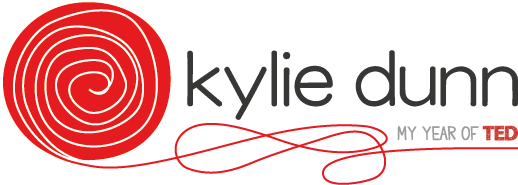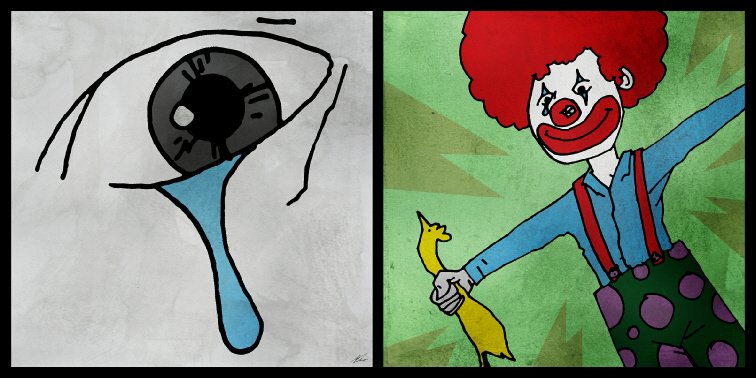Reflection - 30 days of preconceptions
I spoke a little about this during the actual activity, but this was a very confronting activity at times. Having said that I will start this reflection by saying that I think that this is something that everyone should do more of. Like most of the activities that I've been doing, making something a focal point in your life really gives you a different perspective of how you operate day-to-day. When it is something as important as potentially making snap judgements that impact how you treat, work with, interact with or simply think about other people then it is worthwhile understanding your preconceptions, prejudices and stereotypes.
My preconceptions
I mentioned during the activity that I was somewhat surprised just how much I "rapidly categorised" people on their appearance alone. It's not like I had no idea that this was something I do, just like everyone else, but until I focused on doing it I didn't realise just how instinctual it really is.
I've really been thinking about this in the last week though and I've realised that whilst I may have been categorising people quite rapidly I don't feel that I was really applying value judgements, more that my brain was just doing a basic grouping exercise. This might be naive of me to think that I wasn't always negatively judging people by categorising them, but I guess I say this because the majority of the categories were associated with identifying potential risks, and I saw very few of these.But at the same time, it was very challenging for me to realise this part of my nature, and to be more aware of some of the prejudices that I do have. For instance, Ford drivers have been something I've picked on for a number of years, partly because my father-in-law was such a Ford fan, and it was a joke. But I realise that I actually do have a prejudice about them now, not that it is entirely baseless but there are plenty of other crap drivers on the road that it's an unfair judgement. I realise that I need to find ways to address some of these prejudices, which is something for me to think about further.
Challenging the media
I have a pretty active cynicism of the mainstream media and the way they feed us information, so this was always something I was going to enjoy a bit. However, it is confronting putting forward my views and my knowledge of a situation into such a pubic forum.
As well as the items that were included a couple of blog posts about asylum seekers, African images and climate change, there were a few other things that I looked into. For example, there was a recent judgement by a NSW court that a young girl should receive a multi-million dollar compensation payout after she became a quadriplegic with severe brain damage from eating a KFC Twister. The way they said it on the news my brain immediately went to the "well that just sounds dodgy", and I wasn't the only one in the room who had that reaction either. So I looked into it and found out that she got salmonella, and that this can go to your brain and cause all of the medical issues that she has - so completely legitimate, and so very tragic.
But why did the news not say, after she "suffered salmonella encephalopathy – a brain injury linked to food poisoning that also left her with a blood infection and septic shock."[Inquirer News] It's not like this would have taken much longer to say and it may have raised awareness of how dangerous salmonella can really be. Or do they cater so much to the lowest common denominator now that technical explanations have no place in the news?
I have my opinions, like everyone else, and they do impact on the way I view the world and the information I am told. This activity helped me realise just how set in some of my opinions I am. Whilst I don't generally feel bad about that in many ways, since I do bend further to the social justice, liberal side of opinion - I have realised that I should keep a slightly more open mind about things.
And in relation to the talks
This was always going to be more about Chimamanda Adichie's talk than the others, and I do think that I did that talk a level of justice in the activity. I educated myself further on a number of issues and really thought about the multiple stories that might be involved in people's lives - and of course I launched the I am not just a... stereotype and preconception blog.
In relation to Bill Strickland's talk, I didn't really have much of an opportunity to apply this side of things during the 30 days. I had planned to spend some time thinking about how I might be able to make suggestions for our service delivery areas around Bill's talk, but there was a rather significant personal event that occurred in our lives that diverted attention.
For Derek Siver's talk I did make an effort to be aware of any thoughts around considering something odd/strange/crazy. What I did find with this one though was that I spent more time bringing this up with other people's opinions. This is not an incredibly unusual role for me, especially around my in-laws, but I did try to be a little more considered around putting forward the case for different cultures, attitudes and actions.
So where to from here?
I think it is very important for me to maintain more awareness of my preconceptions and when I might be adversely judging people by considering only one aspect of them.I'll let the cat out the bag a little here and state that Activity 13 is going to be 30 days to start a movement. For the 30 days of this activity I will be trying to find ways to promote the I am not just a... blog and trying to make people more aware of their preconceptions and stereotypes.
I've got a few target demographics I'm going to try really promoting this with, but I would love to hear from any of you about how/where you think this might be promoted, and particularly if you would like to share you story to challenge a stereotype you face.
To all three of the speakers, thank you for the inspiration.

